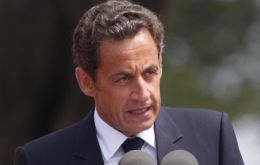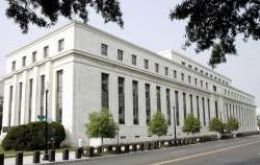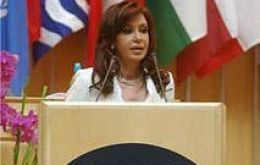MercoPress. South Atlantic News Agency
Economy
-
Wednesday, June 17th 2009 - 05:20 UTC
After 18 quarters of growth Uruguay technically in recession

Contrary to government forecasts the Uruguayan economy plunged 2.9% in the first quarter of this year putting an end to 18 uninterrupted quarters of sustained growth. Although government officials downplayed the impact of the retraction, private analysts said this signals the beginning of a recession period in line with what is happening globally.
-
Wednesday, June 17th 2009 - 05:12 UTC
BRIC members meet to demand greater voice is world financial affairs

The world's newest economic grouping, BRIC is to hold its first summit in the Russian city of Yekaterinburg beginning Tuesday. BRIC is named after its four member states - emerging giants Brazil, Russia, India and China; they account for 13% of global GDP and 40% of world population.
-
Tuesday, June 16th 2009 - 13:16 UTC
Lula da Silva calls for new world economic order

Brazilian President Lula da Silva urged unions and workers on Monday to take advantage of the global financial crisis to help forge a new world economic order. He also criticized multilateral organizations for having no plans to address the current global crisis.
-
Tuesday, June 16th 2009 - 13:14 UTC
“Regulation of globalization is the central issue”

French President Nicolas Sarkozy has warned of political and social unrest unless there is greater regulation of the globalized economy. He argued that the current system of “speculation and dumping” cannot continue. “We have to overhaul everything,” he said. He called for a larger role for social institutions in financial regulation.
-
Tuesday, June 16th 2009 - 13:12 UTC
ECB anticipates further write downs: 283 billion USD by end of 2010

The European Central Bank (ECB) warned on Monday that the crisis facing the banking sector is not over, despite unprecedented government efforts to support banks.
-
Tuesday, June 16th 2009 - 13:06 UTC
Spanish banks downgraded; Madrid announces 99 billion Euros rescue fund

Moody's Investors Service on Monday cut the senior ratings of 25 Spanish banks, citing expectations of further capital pressures. As well as broader economic pressures, the banks' asset quality indicators continue to point towards a further significant deterioration, Moody's said.
-
Tuesday, June 16th 2009 - 11:09 UTC
Lula da Silva promises to teach lessons how to address an economic crisis

President Lula da Silva said that Brazil is overcoming the current global crisis and is in a position to teach other countries how to address the adverse economic situation.
-
Tuesday, June 16th 2009 - 10:59 UTC
The US dollar still “all mighty” for some time to come

The dollar has risen after Russian finance minister Alexei Kudrin said it would not be replaced as the world's reserve currency in the near future. Earlier in the week, Russian President Dmitry Medvedev and Chinese central bank governor Zhou Xiaochuan had both questioned the dollar's status.
-
Tuesday, June 16th 2009 - 10:56 UTC
US government proposes sweeping reforms to financial regulation

The US government is planning a major overhaul of the system of financial regulation to avoid future crises. The broad outlines of the plan were revealed on Monday by US Treasury Secretary Tim Geithner and White House economic adviser Larry Summers.
-
Tuesday, June 16th 2009 - 10:49 UTC
Mrs. Kirchner underlines “job-creation” capacity of her administration

Argentine president Cristina Fernandez de Kirchner in the midst of a tough battle to retain power in Congress in this month’s mid term election took the political debate to Switzerland where she addressed the annual meeting of the International Labour Organization, (ILO).
